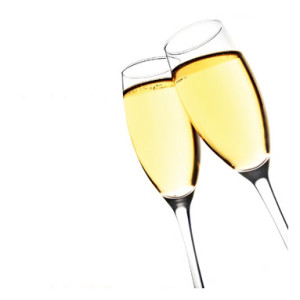Now is a good time to stop drinking alcohol try Dry January today
It’s that time again where health officials bang on about the dangers of alcohol and for good reason. If you manage a Dry January, you are more likely to carry the newfound healthy habit on into the year.
But alcohol makes us feel good
Most of us know what the effects of alcohol are. We feel euphoric, energised, confident and less inhibited for the first few drinks. We relax and become more sociable. This is because alcohol affects the pre-frontal cortex which is responsible for rational thought, self-control and decision making.
It’s a nice feeling, but because the pre-frontal cortex is no longer paying attention, this means you are now much less likely to stop. This is when one glass of wine turns into a whole bottle, or two.
The body and brain are being poisoned
Our body considers alcohol as a poison and from the moment it’s absorbed into the bloodstream our bodies are trying to get rid of it. As the alcohol increases the effect of a brain neurotransmitter called GABA – Gamma-Aminobutyric Acid, it dampens responses. You may make poor decisions and eventually feel in a bad mood or depressed. (1)
Having a couple of units of alcohol does not usually have much of a harmful effect on the brain. It’s when it becomes 3 or 4 units a day the problems start. Binge drinking, in particular, accompanied with blackouts is a warning sign trouble could be ahead. This behaviour over many years not only hurts your liver and kidneys, but your chances of developing cancer also increase, as do brain disorders.
Dry January could help brain cell regrowth
Research carried out on animals shows that large amounts of alcohol disrupt the growth of new brain cells. This lack of new growth has important ramifications for the hippocampus especially as it’s the part of the brain that deals with short-term memory and spatial awareness. Lack of new growth here can lead to memory problems, and dementia and be a contributor to Alzheimer’s. (2)
Heavy drinking may also result in malnutrition as alcohol suppresses hunger and depletes the body of important vitamins and nutrients such as Thiamine. (3) But even drinking moderate levels of alcohol for elderly women can be dangerous. Alcohol increases blood pressure and cholesterol, which damages the blood supply to the brain and can lead to vascular dementia. (4)
Dry January could help older people who are more at risk than the young
Many people assume that it’s younger people who are the most reckless with drinking too much alcohol, but my own experience in the clinic reflects that of research, and that is the age group 50+ who seem to be having the problem. This I believe, is more to do with social acceptance. In the 1960s and 70’s alcohol intake was high, and post-war Britons who went on holiday abroad developed a taste for wine. They drank at lunchtimes as well as in the evenings, and I can remember when I first started work in the publishing industry back in the 80’s, everyone went to the pub for lunch at least once a week if not more. I remember journalists disappearing for the afternoon, not because they were working on a story but sleeping off the effects of 3 pints of beer or a bottle of red.
1. https://www.hellosundaymorning.org/daybreak/effects-of-alcohol
2.(33) Crews, F.T.; Miller, M.W.; Ma, W.; et al. Neural stem cells and alcohol. Alcoholism: Clinical and Experimental Research 27(2):324–335, 2003.
3. http://www.bbc.co.uk/news/health-18856658
Dry January Case Study
Last year 2016, A gentleman who had just retired came to see me, I shall call him Gary. He was concerned that since his retirement, his downing a bottle of wine each evening had risen dramatically. He was struggling to get it under control so he read an article I had written previously and decided to try tackling it by hypnotherapy. Gary had a very matter-of-fact approach to problems. A high emotional intelligence, which helped him see the problem for what it was. Drinking was very much part of his work-life culture and so he habitually drank. But now, when he had time to do all the things he promised to do when retired, the drinking was holding him back.
A lightbulb moment
When I explained the effects of alcohol on the brain, he showed he was already familiar with the possible dangers. But when I added in how habits are formed the penny dropped and he experienced a lightbulb moment. He realised he always poured himself a drink around the same time of day. We all know about the expression “Wine o’clock”. I also told him that location also played a part. Consequently, if you want to change a habit you know you need to understand the role of time and location when it comes to changing them.
That was it. He sat down and worked out what he could do to break the habit, making sure he was otherwise occupied at the critical time of day. He substituted different drinks. As he liked red wine I suggested Polish Cherry juice. Drinking it out of his favourite wine glass he admitted it tasted very similar to red wine. The bonus is it helps you sleep better because of its the effect on melatonin production.
Within the 6 sessions, that we had booked he managed to get to grips with it. He had frequently been exposed to drinking whilst out with friends and family but had always managed to be in control.
Also, see Addictions

